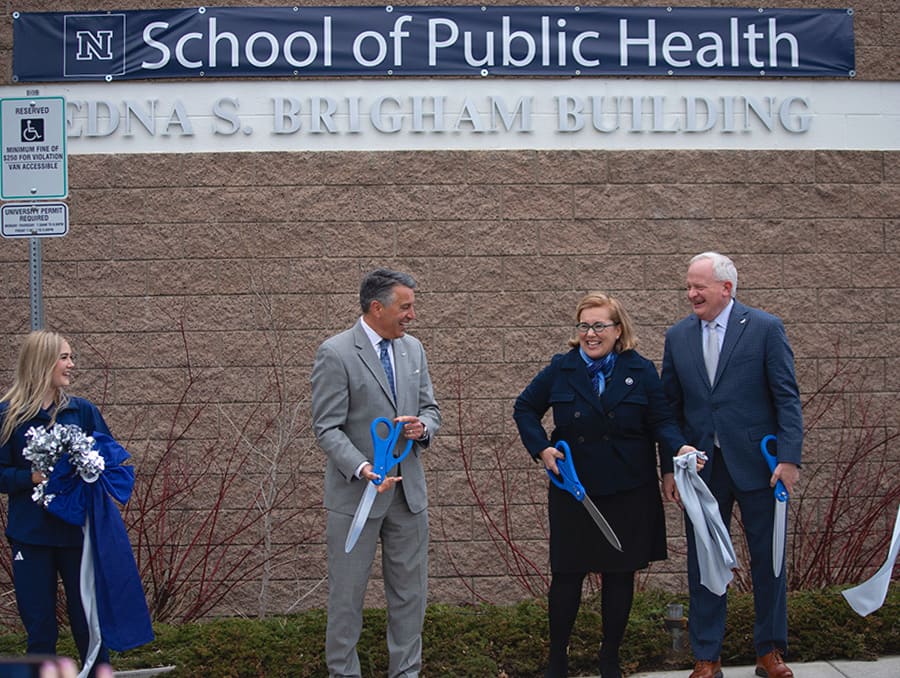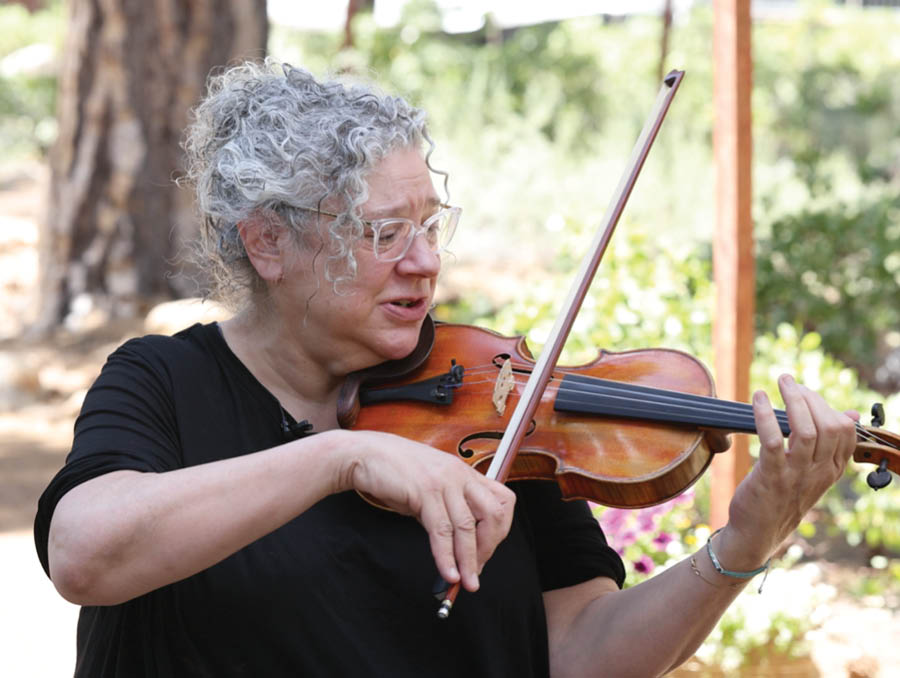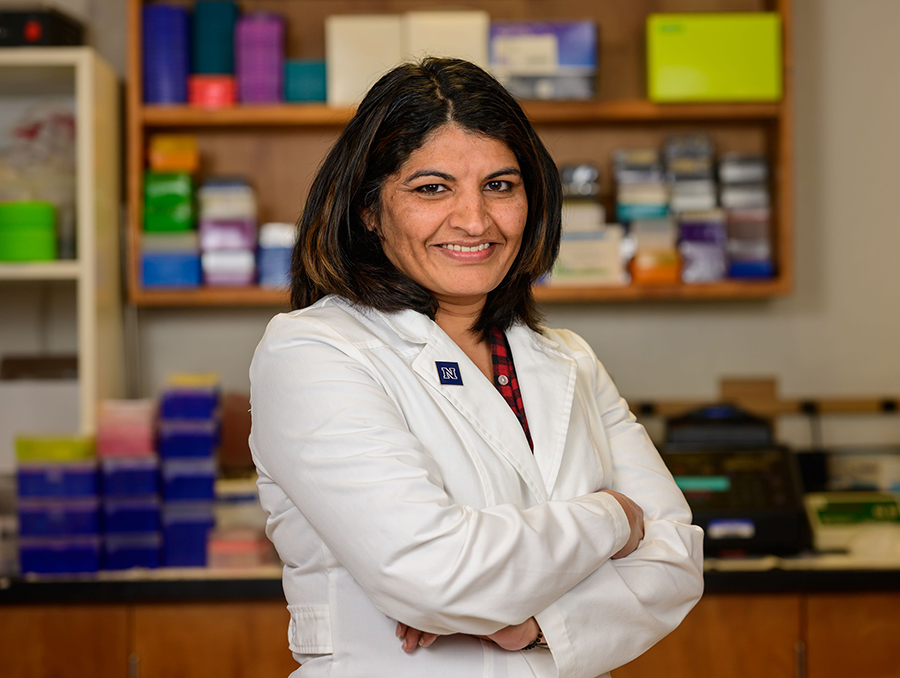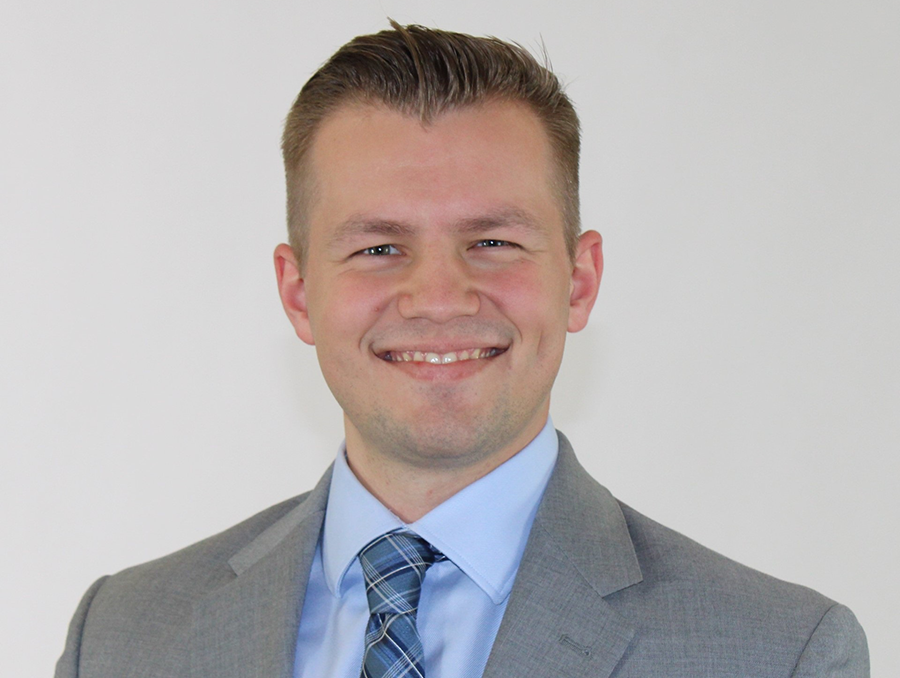University of Nevada, Reno President Milt Glick emphasized the competitive nature of higher education in today’s ever-competitive world during his talk Thursday to the Reno Sparks Chamber of Commerce’s Business Networking Breakfast. He also reminded attendees that education must be a compassionate and collaborative enterprise as well.
“I believe the way we move this economy is we produce more bright, talented, creative, risk-taking young people,” Glick told a group of about 130 Chamber members and guests in the Grand Ballroom of the Joe Crowley Student Union. “All of us win when we join together and we say, ‘How do we help the business community and how does the business community help us.’
“I believe the best investment a society can make is in K through 12 and in higher education.”
Glick said nowhere has the term “doing more with less” in higher education been more apparent than at Nevada. Having cut $44 million in its budget, the University is still attracting more competitive research dollars and more students than ever before. He said this year’s freshman class could be up to 500 students larger than ever before, and that over the past 10 years, the University has increased the number of bachelor’s degrees awarded from 1,350 to more than 2,300 awarded last spring.
“That’s a 66 percent increase,” Glick said of the decade-long growth in bachelor’s degrees. He added, drawing applause from the group, “You believe we need to produce more baccalaureate degree holders, and by golly, we’re doing it.”
As an example of the transformational influence a college education can have, Glick cited former Associated Students of University of Nevada, Reno President Eli Reilly, who graduated from Nevada in May with a degree in history.
“(Reilly) said he’d never been to a concert before he came to our university, he’d never been to an art exhibit,” Glick said, noting that Reilly rose from humble academic beginnings on campus to graduate with a 3.5 grade point average. Reilly will be attending graduate school at Nevada this fall. “He said, ‘I didn’t know what to expect when I came to college.’ College changed his life. He knew what he found.”
Glick’s hour-long presentation, entitled, “The University of Nevada, Reno: Enterprise, Not Agency” emphasized the similarities the state’s oldest institution of higher learning shares with the business community.
Just as any business must find innovative ways to thrive in a hyper-competitive marketplace – particularly one that has become increasingly challenging with the state’s economic downturn over the past few years – Glick said the University also must approach its work with entrepreneurial zeal.
“We compete for the best faculty, we compete for the best students, we compete for the best grants,” Glick said. “We do this because competition makes us better.”
Glick said the University improves each time it hires quality faculty, some of whom can become what he termed “franchise players.” He cited perennial NBA All-Star guard Steve Nash as an example of a “franchise player” whose benefit to his team over the years has gone far beyond simple statistics. Nash, a gifted scorer, is also known as a player who can distribute the ball to his teammates in ways to enhance their individual abilities.
“Steve Nash is a great basketball player, but his real value is he makes everyone around him better,” Glick said. “That’s what ‘franchise players’ can do for a university.”
Glick said that the University, by virtue of its size, has some built-in limitations that require it to “focus” its research efforts in key areas. “We’re trying to focus on specific areas that will go across colleges,” he said, noting that in dealing with the state’s mining community, the University often melds mining engineering, business, agriculture and science faculty expertise to meet that industry’s research, knowledge and innovation needs. “Our effort is to focus on areas that will help certain areas in the state, to help make them better.”
Glick also drew applause from the crowd during his explanation of the way the campus optimizes its state- and private-funded assets.
He told the different stories of three buildings either just recently completed or soon to be completed – the Davidson Mathematics and Science Center, the Center for Molecular Medicine and the Pennington Health Sciences Building – and said that from $81 million appropriated from the legislature for the three buildings, “it was leveraged for a total of $182 million (the final cost of three buildings once private and faculty research funding are added) for our educational infrastructure.”
The story of the Pennington Health Sciences Building, in particular, struck a chord with the audience as Glick explained how the facility will not only help train more doctors and nurses, but will emphasize the type of collaborative, “team” approach that will define the delivery of 21st century medicine.
Last year’s Foundation Banquet speaker, Harvard Medical School Professor Atul Gawande, has extolled the virtues of Nevada’s cutting-edge approach on National Public Radio and in the Harvard Business Review since he learned about it during his visit to campus last fall.
“He’s been asked, ‘Where do you see real innovation happening in health care in our nation?’ and he’s said, ‘The University of Nevada,’” Glick recounted, drawing applause from the crowd.
Glick emphasized the quality of faculty and research at the University, and said the University will continue to bridge the gap between the business community and research opportunities on campus in a variety of ways. He said efforts are already underway to make the campus’ tech transfer office more easily accessed by the business community. He added that the University will continue to take its role of “a marriage broker” between business and research on campus seriously.
“We have to be the ‘marriage broker’ to bring together the right faculty and our business community,” he said.
Glick added, however, that the University needs the business community’s support as well.
“I do believe that we’re entering an innovation economy,” he said. “The economy of this nation will not be directed by natural resources, or by who your mother or father is, but by who can innovate. We know we have to produce more college graduates. It’s our job. But we need the help of the business community to make it happen.”











